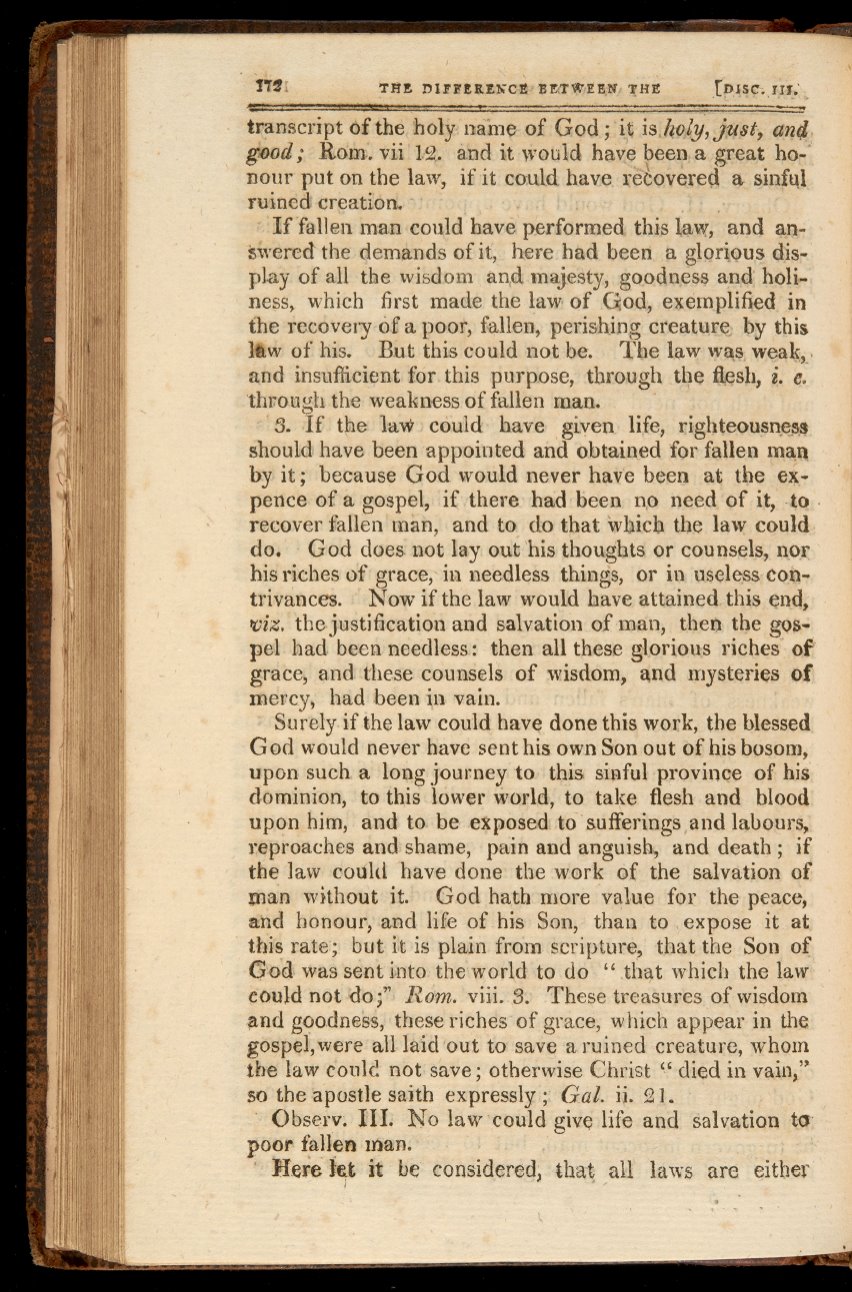

IT2
TAE
DIFFERV
CL
BETWEEN THE
[Disc.
m.'
transcript of
the
holy
name
of God
;
it
is
hay,
just,
and
good;
Rom.
vii
1:Q.
and
it
would have been
a great
ho
nour put
on
the
law,
if
it could have recovered
a
sinful
ruined
creation.
If
fallen man could have
performed this
law,
and
an-
swered the
demands
of
it,
here
had
been a
glorious
dis-
play
of
all
the
wisdom
and
majesty,
goodness
and holi-
ness, which first
made the law
of
Cod,
exemplified
in
the
recovery
of a
poor, fallen, perishing
creature
by this
lttw
of
his.
But
this could
not
be.
The
law was
weak,,,
and
insufficient
for this purpose, through
the
flesh,
i.
e.
through
the weakness
of
fallen man.
3.
If
the
lave
could
have given
life,
righteousness
should have been
appointed
and
obtained for
fallen man
by
it;
because
God
would
never have been
at
the ex-
pence
of
a gospel,
if
there
had been no need
of
it, to
recover
fallen man, and to do
that
which the law
could
do.
God
does
not
lay
out
his
thoughts or counsels,
nor
his
riches
of grace,
in
needless things,
or
in
useless
con-
trivances. Now
if
the
law would have
attained
this
end,
viz.
the
justification and
salvation
of
man,
then the gos-
pel
had
been
needless:
then
all these
glorious
riches
of
grace, and these counsels
of
wisdom,
and
mysteries
of
mercy, had been
in vain.
Surely if
the law could have
done this
work,
the
blessed
God
would
never
have
sent
his own Son
out of
his bosom,
upon
such
a
long
journey
to
this
sinful
province
of
his
dominion, to this lower world, to
take
flesh
and
blood
upon
him,
and to
be exposed to sufferings
and labours,
reproaches and
shame, pain and anguish,
and death
;
if
the
law
could
have
done the work
of
the salvation
of
tnan without
it.
God
hath more value for
the peace,
and
honour, and
life
of
his
Son,
than
to expose it at
this
rate;
but
it
is
plain
from
scripture,
that
the
Son
of
God
was
sent
into the world to do
"
that
which the
law
could
not do;"
Rom.
viii.
3.
These treasures of
wisdom
and
goodness, these
riches
of
grace, which
appear
in the
gospel,
were all
laid
out
to
save
a ruined creature,
whom
the
law
could
not save;
otherwise
Christ
"died
in vain,"
so
the apostle saith expressly
Gal.
ii.
1.
Observ.
III.
No
law could
give
life
and
salvation to
poor
fallen
man.
Here
kt
it
be
considered,
that
all
laws
are
either

















